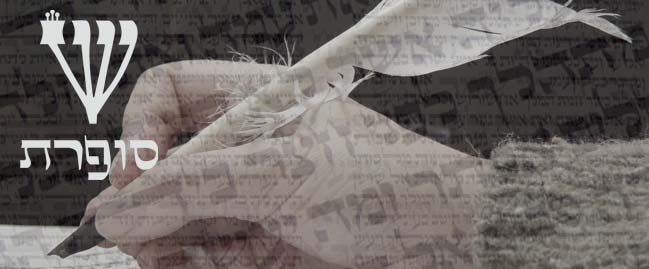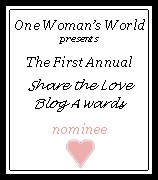LONG PATH TO BEING A TORAH SCRIBE
BS"D
After moving from one yeshivah to another, while learning sofrut, Aviel Barclay is forced to return to Canada.
AVIEL BARCLAY SPECIAL TO THE JEWISH BULLETIN
This past August, Bulletin readers learned about local scribe Aviel Barclay, perhaps the first woman in the world to be commissioned to write a sefer Torah. Last week, we presented the first of a two-part series on the background to this momentous event. This week, we pick up the story as a rabbi at the yehivah in which Barclay was studying wanted proof in the form of signed documents that she was halachically Jewish.
The admissions rabbi marched me into his office again and asked if I'd given up on my "crazy ideas." I said no. He then challenged my Jewishness. He said that I obviously couldn't really be Jewish if I was going to do something so destructive to the Jewish people as to learn sofrut. He demanded that I prove to him that I was halachically Jewish, otherwise I would have to leave the yeshivah. I was eventually able to furnish him with copies of the relevant paperwork so he could make calls regarding the rabbis who signed all the different papers.
A week after this incident, the same rabbi again called me to his office. He asked if I had stopped my foolish feminist activities. I said no. He told me that I was breaking halachah by learning ST"M (an acronym standing for sifrei Torah and the prayers used in tefillin and mezuzot).
"Even for the purpose of chinuch (training)?" I inquired.
"Yes." He was quite definite.
I asked him about Rashi's daughters and Michal, King David's wife, who are said to have laid tefillin. He didn't answer me except to say that women don't need tefillin because we have fallopian tubes, which serve the same function as tefillin. We went a few rounds in this fashion until I finally presented him with a challenge. I said that if he could prove to me 100 per cent, with no doubt, that women were never permitted to write a sefer Torah, that I would accept the halachah. He agreed. He offered to get back to me with times we could meet and learn together.
I waited. Weeks went by. He was never available to meet with me, until eventually he called me into his office once again. This rabbi told me straight that if I did not give up on my learning that I would be expelled from the yeshivah.
"You can't stay here forever," he said. Each time I reminded him of our deal to learn together so he could prove me that I was in the wrong, he simply insisted that I was commiting an aveyrah (sin) by continuing. He demanded one last time that I reveal the name and address of my sofer, otherwise I had to leave. I packed up and left the yeshivah. I had lived there four months.
In the meantime, I often met with friends for coffee or dinner in the time I had left over after yeshivah and sofrut. Some of these friends, who went to men's yeshivot, sympathized with my predicament. They had respect for the way I wanted to serve the Jewish community and felt that I shouldn't be harassed over it. In turn, each of them offered to ask their rabbis about the halachah on women writing sofrut. They each returned with answers:
"Rabbi so-and-so said that women can't write anything ST"M because that isn't a part of a woman's role in Judaism."
"My rabbi said that since you would be doing a man's job by writing a sefer Torah and you have a female neshamah (soul) that you'd be damaging your neshamah."
"Such-and-such a rabbi told me that women aren't allowed to write ST"M because they would make mistakes."
I was at the next yeshivah in Qiriyat Moshe, slightly less Orthodox than the last, when whispers went around that there was actually a woman who was learning sofrut and boy are we lucky we didn't have such epikorsut (heresy) in our yeshivah. I asked about this woman. The rumor was that she had just been kicked out of the women's seminary in the next neighborhood. That's when I realized the woman they were gossiping about was me.
One sunny spring day, I asked my sofer, after telling him about all the troubles I'd been having, what halachic ground he had to teach me sofrut.
"What do you mean?" he asked.
"Where does it say that women can write sifrei Torah – the Talmud? Mishneh Brurah? Liqutei Sifrei ST"M? Where in Jewish law does it say you can teach me sofrut?"
He shrugged his shoulders, saying, "I don't know."
"What?" I smiled, incredulous. "What do you mean you don't know? You've never looked it up? Why are you teaching me, then, if you don't know whether it's permitted?"
"It's just that sometimes it's closer to the truth to be an epikoros (heretic)."
I meditated on this in my next yeshivah, a Breslover yishuv in the gush, far away from Yerushalayim and surrounded by five Hamas villages. It was one wacky place! Although this sect of Chassidic Judaism was equally as strict as my previous yeshivot in regards to men's and women's roles being defined in a very traditional way, I somehow felt comfortable volunteering my story to the rebbetzin who ran the women's yeshivah. Nobody was judgmental, nobody came out gangbusters condemning my actions or ideas or called me names, but they definitely thought I was odd. After some time there, she even suggested that perhaps a woman writing a sefer Torah would turn out to be a part of the events that must happen to bring Mashiach. I dwelled on this over Shavuot, the season of our receiving the Torah. I then returned to Yerushalayim.
I hadn't learned with my sofer for some time, so we spent more time learning together and I even spent a few Shabbatot at his shul and in his home, becoming friendly with his wife and children. During this time, I began attending my fourth yeshivah, in Bayit Ve'gan. I didn't pull any punches with the faculty. My confidence and self-possession had grown over the past months since leaving yeshivah number two, so I told the head of the seminary first off about my learning sofrut. Even though Nishmat was an Orthodox women's yeshivah, Rabbi Blobstein was unfazed by my statement and I was welcomed to move into the dorm.
I had been at Nishmat a couple of weeks when I was mugged downtown. Suddenly I had to turn my attention to replacing my passport, phone, bank and credit cards, etc. Although I was eventually able to obtain a temporary passport, neither the credit card companies nor my bank were willing to send me replacement cards overseas. This stopped my cash flow dead. I had no way of paying the yeshivah, my sofer or covering any of my living expenses. My mother even tried to wire me money, but they required photo ID for me to pick up the cheque and I wouldn't be able to pay for a temporary passport without this cash. I couldn't borrow the money I needed so I could find no recourse but to schedule my flight home.
I left Israel, determined to stay in touch with my sofer and to continue learning.
In the past four and a half years since returning to Canada, I have dedicated myself to exploring the texts pertinent to women and sofrut with a number of rabbis. In addition, I have conversed with a wide variety of Jews of every level of scholarship on this subject, encountering both horror and enthusiasm. I have been happy to discover in the writings of the Rishonim, as well as our Acharonim, that there is, in fact, room for women to practise some sofrut. These statements and arguments made pre-feminism exist alongside those that are against women having anything to do with the process or practice of sofrut and can be found everywhere from the Tanach to the Shulchan Aruch.
As we've seen over the past 100 years in particular, women have been making room for themselves in the world, both inside and outside Judaism. As we continue to define our own roles and share what gifts we have to bring to our communities, I feel confident that, at the right time, God willing, the world will open up to women acting as ritual scribes. May this be granted in a good time and help expand world Jewish consciousness and hasten the arrival of Mashiach. Amen.
Aviel Barclay returned to Jerusalem this past summer to continue her sofrut training. She has received a letter, signed by her instructor, certifying that she has the necessary skills to write a sefer Torah. Barclay has since returned to Vancouver and will be continuing her sofrut activities. She will also be giving a six-week course entitled ShalhevetYah: The Holy Flame of Aleph-Bet at the Jewish Community Centre of Greater Vancouver beginning Oct. 28. Call 604-257-5111, ext. 711, for information.
The link to this original article is here














0 Comments:
Post a Comment
<< Home